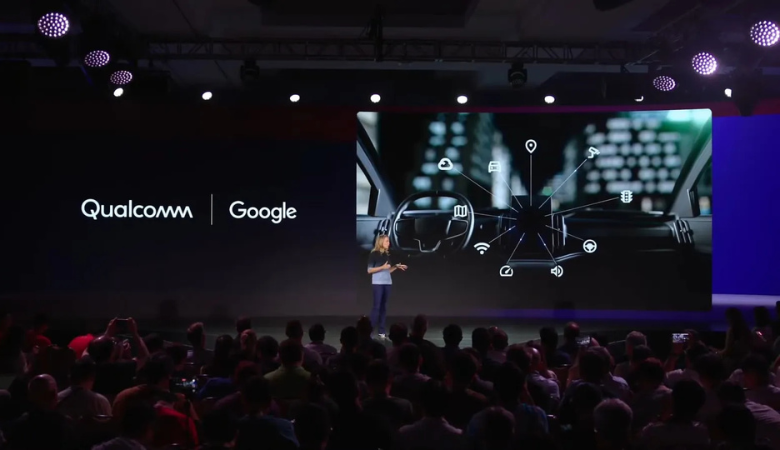Introduction: The Future of AI-Driven Vehicles
The partnership between Google and Qualcomm signifies a transformative step in automotive technology. As the demand for smart vehicles rises, this collaboration aims to integrate advanced generative AI features into cars, offering innovative solutions that enhance user experiences and vehicle performance. Leveraging Qualcomm’s Snapdragon Digital Chassis and Google’s Android Automotive OS, this partnership is poised to redefine what connected cars can achieve.
Key Features and Technologies: Snapdragon Meets Android
This multi-year partnership between Google and Qualcomm aims to provide automakers with a standardized AI-driven platform. At the heart of this initiative is Qualcomm’s new lineup of processors, including Snapdragon Cockpit Elite and Ride Elite, designed to power both dashboard interfaces and autonomous driving systems.
Some standout features and expected developments include:
- Intelligent Voice Assistants
With Google’s expertise in voice-based AI, the platform will allow automakers to create custom voice assistants. Unlike systems dependent on smartphones (like Android Auto), these assistants will be embedded directly into vehicles, offering real-time assistance such as adjusting routes based on traffic updates or suggesting nearby landmarks and cafes. - Personalized Driving Experiences
Leveraging Google Calendar and user preferences, the AI system can pre-plan routes, queue up favorite playlists, and anticipate the driver’s needs. An exciting example shared is the car recognizing driver fatigue and proactively suggesting a coffee break—demonstrating a move towards safety-focused AI applications. - High-Performance Hardware
Qualcomm’s Snapdragon Digital Chassis forms the technological backbone, supporting up to 16 high-resolution displays and offering up to 12x improvements in AI performance. This boost will allow seamless control over infotainment systems, climate settings, and safety features. - Cloud Connectivity and AI at the Edge
Qualcomm’s cloud-connected services will work with Google Cloud to offer a scalable framework. This setup not only reduces time-to-market for new automotive services but also ensures continuous updates, enhancing the long-term value of connected vehicles. Automakers will also have access to API-driven tools for building unique services tailored to specific vehicle models.
Industry Implications: Elevating the Driving Experience
Several automakers are already on board with this next-generation platform. Mercedes-Benz is among the first to incorporate Qualcomm’s advanced chips into its vehicles, emphasizing the appeal of intelligent, AI-powered automotive solutions. The integration of Android Automotive OS is expected to create smoother experiences, with capabilities such as over-the-air updates becoming standard.
This partnership also reflects a shift in Qualcomm’s strategy to diversify beyond mobile devices and dominate the automotive sector. Its entry into AI-powered car technologies comes at a critical time, as connected cars are forecasted to comprise a significant share of the global market by 2030.
The Strategic Importance of the Partnership
The collaboration between Google and Qualcomm aims to streamline the development process for automakers, who traditionally had to manage fragmented software and hardware solutions. By working together, these tech giants are removing barriers, ensuring better performance integration and reducing friction during implementation. Moreover, Google’s cloud capabilities will help automakers achieve faster software rollouts, a key differentiator in today’s competitive automotive landscape.
Conclusion: A New Era of AI-Driven Mobility
As generative AI becomes a defining component in automotive innovation, the Google-Qualcomm partnership is well-positioned to lead the charge. With capabilities ranging from intelligent voice assistants to immersive infotainment systems and real-time driver assistance, this collaboration aims to deliver smarter, safer, and more enjoyable driving experiences. For automakers and tech enthusiasts alike, this partnership marks the beginning of the next wave of vehicle innovation.
As the project evolves, consumers can expect to see more vehicles equipped with these cutting-edge technologies in the coming years. With Qualcomm’s hardware expertise and Google’s dominance in AI and cloud computing, the road ahead for connected cars looks promising—and perhaps more intuitive than ever before.
For further details on Qualcomm’s automotive efforts and the role of AI in this collaboration, check out articles from 9to5Google and Qualcomm’s official newsroom.


